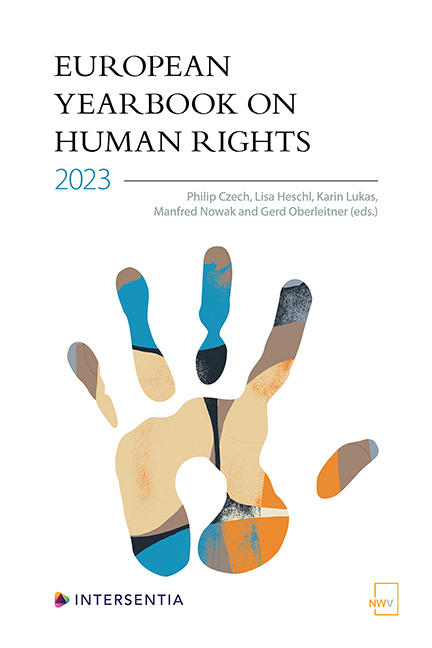The Court of Justice of the European Union and Human Rights in 2022: National Security Interests as Means of Deviation from EU Law?
Published online by Cambridge University Press: 04 April 2024
Summary
ABSTRACT
In 2022 the Court of Justice of the European Union (CJEU) delivered important judgments in the field of fundamental rights concerning ‘national security’ interests. The latter may serve as means to deviate from EU law, and especially from fundamental rights law. This became important in 2022, not only because of the outbreak of the Ukraine war, but also in relation to ‘renegade’ Member States that attempted to undermine the uniform application of EU law. Seven judgments, in the fields of rule of law , data protection , freedom of speech and freedom of movement , are discussed. From these, it follows on the one hand that Member States may invoke national security interests only in highly exceptional cases, for example when faced with concrete terrorist threats. On the other hand, serious interferences with fundamental rights by the EU legislature for the protection of national, supranational or international security were accepted.
INTRODUCTION
2022 marked the seventieth anniversary of the Court of Justice of the European Union (hereinaft er ‘CJEU’). The Court has not only proved itself as a vehicle for European integration and a defender of the supremacy of EU values and law, but has also served as a guardian of fundamental rights. However, 2022 was also the beginning of the Ukraine war, which affected the EU in many aspects, above all in its role as a peace community. Besides this, the Court had to do once more with ‘renegade’ Member States that tested the primacy and uniform application of Union law.
In this connection, in 2022 the CJEU dealt, in several cases, with the notion of ‘national security’ or ‘public security’. These were brought up by Member States in various contexts, regarding the protection of the ‘national identity’ (section 2), data retention (section 3), and the reinstation of internal border control (section 5). Also, security interests were invoked by the EU, legitimising the broadcasting ban on certain Russian media outlets, to preserve peace within the Union (section 4). The underlying effects are identical: all of these interests are intended to support deviation from EU law, especially from the rights guaranteed in the Charter of Fundamental Rights (hereinaft er ‘CFR’).
- Type
- Chapter
- Information
- European Yearbook on Human Rights 2023 , pp. 591 - 626Publisher: IntersentiaPrint publication year: 2023



